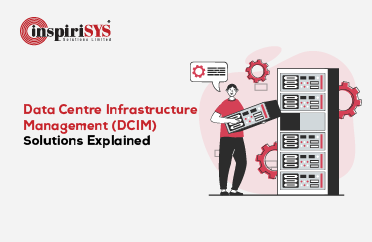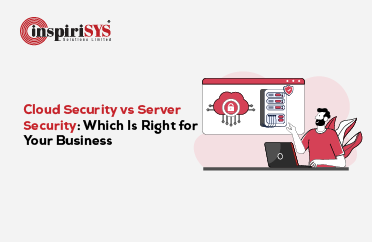Core banking systems form the foundation for banking and financial institutions. They consist of a centralized back-end system that facilitates various financial processes, including banking transactions such as loans, deposits, interest calculations, and more across a decentralized network of branches. Core systems form an integral aspect of digital banking technology. Customers can transact anywhere, anytime and have a greater level of control and ownership over their personal accounts.
When it comes to banks and large financial institutions, these systems reduce dependencies on manual labour, operational costs, minimize turnaround times for transactions and make it easier for banks to expand their outreach into remote locations. No financial institution in this day and age can function effectively without having an effective core banking system in place.
There is simply no alternative to handling a high volume of transactions reliably while preventing interruptions and potential security breaches. Financial institutions place significant emphasis on choosing the right core banking systems for a number of reasons. Maintenance costs, regulatory compliance, loss of customer trust, and potential reduction in revenue are some of them.
However, many organizations continue to use outdated, legacy systems for their operations. These systems are largely ineffective and obsolete. With technology in digital banking improving by leaps and bounds, the need for advanced technology gains far greater significance.
Challenges in Selecting a Core Banking System

There are several parameters to be considered before selecting a core banking system. Financial institutions need to select vendors who can provide services to support the system and create end-to-end business solutions. They also need to consider the technical characteristics of the system in terms of architecture, functionality, and customization. Here are some of the main challenges that banks face while choosing a CBS:
Option Paralysis – With service providers offering a host of core banking system options, knowing which provider to employ can be a tricky process. CBS generally interfaces with an array of systems. Financial institutions need to effectively evaluate their options and select a system that works in conjunction with existing legacy banking functions.
Cost - There’s no escaping the financial constraints that go with adopting a CBS. Core banking services come with their own pricing and fee structures. Services are typically offered as subscriptions, and features may be included or excluded based on functionality. Stakeholders may insist on opting for a cheaper option that will well be unsustainable.
Financial institutions need to select a core banking service provider that aligns with their business strategy. Migrating to a new system can be expensive. Organizations need to ensure that they partner with the right provider.
Compliance – Another major challenge faced by banks is compliance. Banks need to ensure that the CBS providers and their propositions meet the regulatory requirements of that region. A thorough process of regulatory audits and reports will need to be carried out to confirm that the chosen systems can handle the enormous volume of transactions securely. These bureaucratic processes may extend the duration of core system implementation.
Technical Support – In-house IT departments may not possess the necessary know-how to implement a CBS. In this case, you might need extended technical support that can aid you with new core system implementation. Data protection and compliance are key factors, too, in this regard. Core banking services must include high-level data encryption. Data privacy needs to be guaranteed for customers while granting continuous access to services. Having a technical support team can reduce bugs and test malfunctions.
Functionality – Core banking systems need to be equipped with built-in functions to meet user demands. Meeting shifting client demands, and the evolving scope of fintech tools pressurizes digital applications to handle market variance. Selecting a core service that is equipped with the functionality to meet your business needs is crucial. Enable visualization by choosing a service that allows you to generate digital reports. Platforms must allow you to get one step closer to creating seamless banking operations. The possibility of software integrations is endless, and each enhances the customer experience.
Benefits of a Core Banking System

Now that we’ve understood the factors that banks need to keep in mind while selecting a core banking platform, let’s take a look at some of the benefits that these systems offer:
Customer Onboarding and Account Maintenance – All customer relationships begin with setting up a bank account. Having the right core banking solution in place can expedite this process. Once a customer has been onboarded, your banking solution can be used to create multiple accounts of different kinds digitally.
Client Communication – Any effective core banking solution should be able to reach customers via SMS messages or automated e-mails. Banks must be able to communicate any updates or information regarding their client’s accounts instantly.
Net Banking – Most people don’t have the time to visit banks and would much rather carry out all their transactions online. A well-designed website will grant account access anywhere, anytime at the convenience of your customers. It also serves as a medium to announce new products and services.
Mobile Banking – Mobile applications possess the general functionality of a website, but are specifically designed for mobile device usage. This allows customers to take advantage of all the features that their accounts have to offer.
Loan Interest Calculation & Payments – Once a loan has been approved and distributed, maintenance is a matter of monitoring and calculation. A CBS is well equipped to calculate interest, fix penalties, and record the arrival of payments.
Conclusion
In this day and age, it is impossible to offer top-notch financial services without having an experienced core banking solutions provider. A quality CBS helps banks and a range of financial institutions boost their quality of service.
Inspirisys possesses vast core banking experience and strong capabilities in implementing effective CBS for a number of clients. We customize our CBS offerings to suit specific customer requirements. Our extensive knowledge of CBS architecture and Finacle Tools & Services has helped leading banks integrate discrete operations.
A well-devised CBS can revolutionize the way you do business. With more efficient customer service, and the capability to provide highly effective, contemporary banking solutions, your organization can greatly benefit from streamlined operations and a centralized structure. Contact us to enhance your digital banking services.







